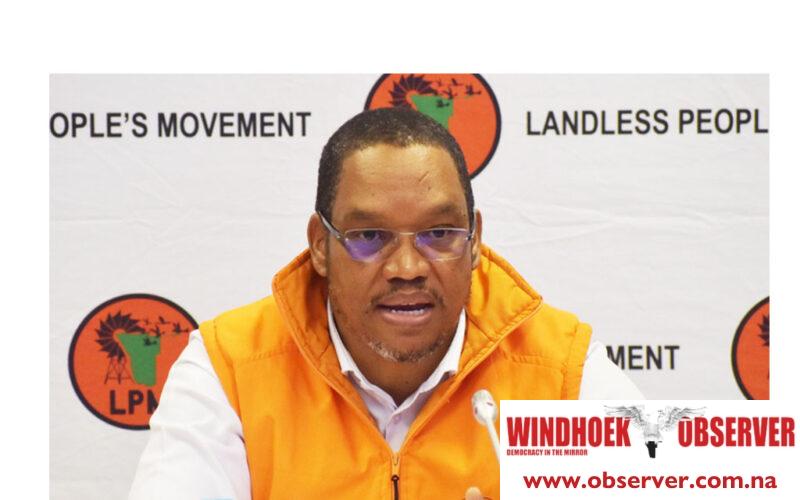Stefanus Nashama
Bernadus Swartbooi, the president of the Landless People’s Movement (LPM) claims the government’s intervention to avail N$365 million to subsidise electricity consumers for the 2024–2025 financial year is a short-term election gimmick.
He said this during the party press conference in Windhoek on Wednesday.
“While the government’s intervention to avail N$365 million to subsidise electricity consumers for the 2024–2025 financial year, effectively cancelling the increment for 2024 and 2025, provides temporary relief, concerns remain about the future. The Electricity Control Board (ECB) has projected further increases in electricity tariffs for the subsequent years, with significant hikes expected from 2025/26 onwards,” said Swartbooi.
Recently, the government announced that subsidies for electricity tariffs would result in no increase in electricity until June 2025.
However, Swartbooi said the move poses questions about the sustainability and long-term affordability of electricity for Namibian households and businesses.
He emphasised that such announcements, which aim to blind voters, should not fool people.
Swartbooi asserted that the current government would make a U-turn on these decisions after the November elections.
“The tax will soon be back to normal. Namibians must not be fooled by these announcements,” he stressed.
According to Swartbooi, the constant increase in electricity tariffs in Namibia suggests that the government’s priority is profit-making, with exorbitant profit margins at the expense of the public.
“Is the government trying to make a profit from electricity tariffs,” he questioned.
He added that this approach is unacceptable, as it places an undue burden on the livelihoods of Namibians, who are already grappling with a high repo rate of 7.75 percent and an inflation rate of about 4.90 percent.
Swartbooi further claimed the ECB’s model appears disconnected from the economic realities faced by the people.
This will create a crippling combination of high electricity tariffs, a steep repo rate, and inflation, he added.
“Despite Namibia’s vast potential for solar energy, there seems to be a lack of urgency in harnessing this cheaper and more sustainable energy source. Instead, significant funds are exported to Zimbabwe, further exacerbating the economic strain on local consumers,” he stressed.
Swartbooi questioned why Namibia exported billions to Zimbabwe when it could be investing in its renewable energy infrastructure.
He said this could reduce Nampower’s role in supplying businesses, potentially lowering costs for consumers.
He wants the government to reveal where the revenue generated from these high tariffs goes and how much energy it costs.
Swartbooi accused the government’s approach of generating more revenue than providing affordable energy to its citizens.
“Are there no other means of sourcing electricity besides relying on imports from South Africa? Why are we not exploring and investing in other local and renewable energy sources?” he questioned.
He advised the government to invest in renewable energy, empower local authorities, have sustainable electricity tariff models, and immediately implement energy reforms.
He also urged the government to address these concerns about affordable and suitable energy.




